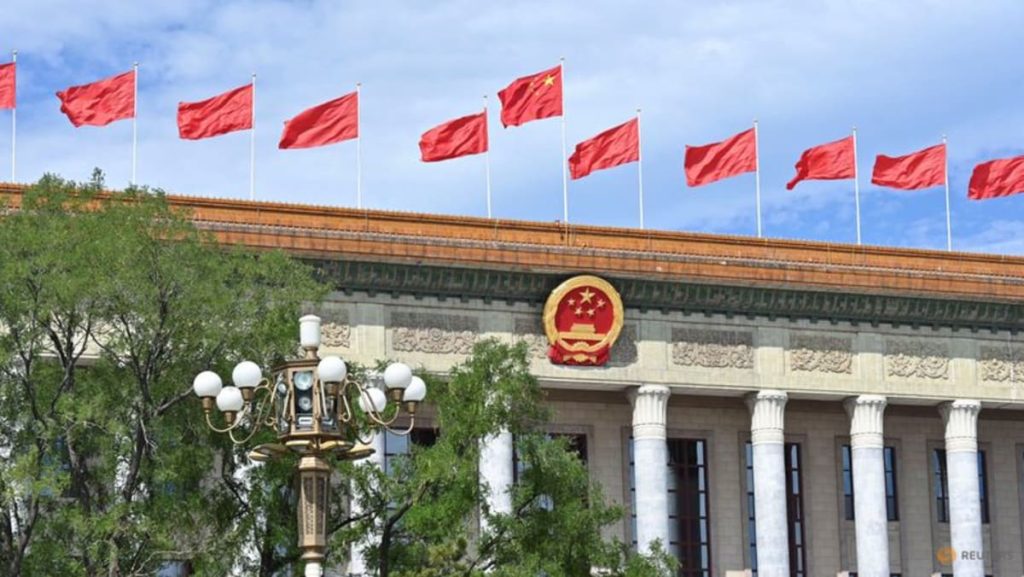Xi Jinping’s Anti-Corruption Campaign Intensifies in 2024, Targeting State-Owned Enterprises and Military
Xi Jinping’s relentless anti-corruption campaign, initiated in late 2012, has entered a new phase in 2024, marked by a heightened focus on state-owned enterprises (SOEs) and the military. While the campaign has consistently targeted corruption across various sectors, this year’s investigations reveal a strategic shift towards industries crucial for national security and economic stability. The intensified scrutiny on SOEs, particularly those operating in the defense and aviation sectors, underscores their significance in China’s pursuit of technological self-reliance and strategic dominance. Simultaneously, the ongoing purge within the military, especially the Rocket Force, highlights Xi’s commitment to consolidating power and ensuring absolute loyalty within the armed forces.
The surge in investigations targeting SOE leaders is indicative of the campaign’s expanding scope. In 2024, six SOE bosses were under investigation, double the number from the previous year. Among them is Tan Ruisong, the former chairman of the Aviation Industry Corporation of China (AVIC), a prominent figure in the aviation and defense industry. This heightened scrutiny within the aviation and defense sectors extends beyond SOE leadership, encompassing dozens of top executives and former officials. Notable cases include Zhu Zhisong, former head of Shanghai’s free-trade zone and former chief of Shanghai’s aerospace bureau, a critical research and development center for rockets and missiles. The investigation into Zhu follows a similar probe into his former deputy, Dai Shoulun, further demonstrating the interconnected nature of these investigations and the campaign’s reach within specific sectors.
The anti-corruption drive within the military has also intensified in 2024, with the People’s Liberation Army’s (PLA) anti-graft watchdog leading the charge. The Rocket Force, responsible for China’s nuclear arsenal, has been a particular focus of these investigations. The recent suspension and investigation of Miao Hua, the Central Military Commission ideology chief, for "serious violations of discipline," underscores the campaign’s penetration into the highest echelons of military leadership. Notably, 2024 has witnessed the unprecedented downfall of two former defense ministers, Li Shangfu and his predecessor Wei Fenghe, both investigated for corruption, expelled from the party, and stripped of their military ranks. These high-profile investigations send a clear message of zero tolerance for corruption within the military, regardless of rank or previous position.
The focus on both the military and SOEs signifies a strategic two-pronged approach in Xi’s anti-corruption campaign. Experts suggest that this strategy aims to address both the "buyers" and "sellers" within the defense industry, targeting corruption on both sides of procurement processes. This not only purges corrupt officials but also serves to strengthen Xi’s control over these critical sectors. The ongoing economic challenges faced by China further emphasize the importance of SOEs, as they play a crucial role in employment and strategic projects. Ensuring the integrity and efficiency of these entities is paramount to maintaining economic stability and achieving China’s long-term strategic goals.
The financial sector, while still under scrutiny, has experienced a slight decrease in the number of high-profile investigations compared to 2023. Four senior state bankers were investigated in 2024, compared to eight in the previous year. While the number of investigations has decreased, the anti-corruption campaign continues to hold the financial sector accountable. The investigations of former China Everbright Bank presidents Li Xiaopeng and Tang Shuangning, and former Bank of China president Liu Liange in 2023, served as a stark reminder of the ongoing scrutiny within the financial sector. The reduced number of investigations in 2024 may indicate a shift in focus rather than a relaxation of scrutiny.
Beyond the military and SOEs, the anti-corruption campaign continues to target individuals across various sectors, including rising political stars. Notable cases in 2024 include Yang Fasen, the Qinghai province security chief, Beijing’s deputy mayor Gao Peng, and Tibet’s deputy government head Wang Yong. These investigations demonstrate the wide-ranging nature of the campaign and its commitment to rooting out corruption at all levels of government. The targeting of rising political figures further consolidates Xi’s power and serves as a deterrent against potential future corruption within the political elite. The campaign’s ongoing nature suggests that further investigations and purges are likely in the coming years, as Xi continues his efforts to reshape China’s political and economic landscape.

